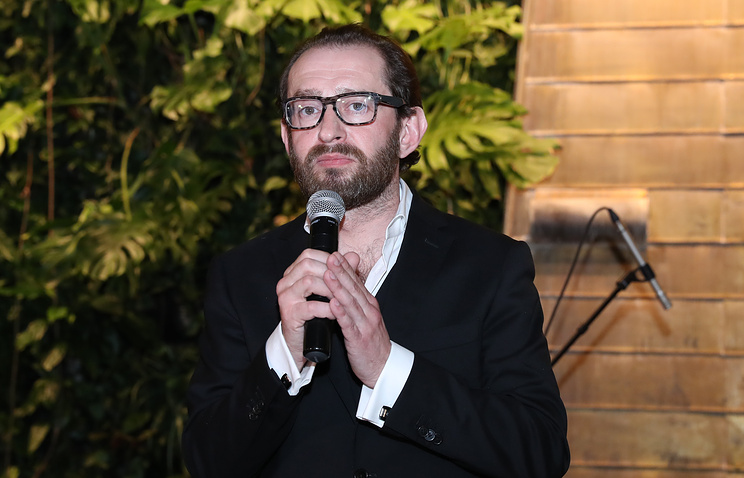Addressing the guests of the event - veterans, diplomats, UN Secretariat staff and journalists, Konstantin Khabensky admitted that he paid special attention to people working in the headquarters of the world organization. According to him, it is in their power to make sure that our children, children of our children could live in peace, harmony and love.
The Russian actor noted that behind every state represented by diplomats are definite people, definite lives, definite fates.
"Our film is about people, our film is for people," he said.
The film was shown in the Trusteeship Council Chamber, a UN body whose activities were paused in 1994, when the last territory under its jurisdiction, Nauru, gained independence. The Russian tape about the events of 75 years ago is relevant today, as it shows a hard, horrifying truth that can not be forgotten, said before the show the permanent representative of the Russian Federation to the UN Vasily Nebenzia.
He recalled that the horrors of the World War II and the firm intention to prevent a repetition of such a tragedy engaged humankind in creating the United Nations.
"There has been written and said much about that great war - documentary, historiographical, artistic, cinematic, but what we want to show you today is another page of that great, horrible, terrible war, which, we all hope, will never repeat again," the diplomat said.
According to him, the countries should be aware of their responsibility to the international community and understand the catastrophic consequences to which unreasonable steps and power solutions of the arising contradictions lead.
"Our common task as heirs of the winners, the successors of the founding fathers of the United Nations, is to strengthen and develop the system of global security," Vasily Nebenzia stressed. He noted with regret that in our time neo-Nazi moods are growing in a number of countries and pointed out that attempts to glorify Nazism and falsify history can not be perceived otherwise as a dangerous retreat to one against which humanity fought and put an end to in 1945.
"Our duty to the memory of the fallen and to the younger generation is to counteract this," the Russian Federation Permanent Representative stressed in his speech.
The film was shown in the original voice acting with English subtitles. The crowded hall thanked the director and the Russian diplomats who organized the event with applause.
- Words are superfluous. You yourself said everything that you think about this film," Vasily Nebenzia took the floor.
He thanked Konstantin Khabensky for the fact that he had reproduced the feat that had not been recognized and evaluated at the time.
"Although it was a hard watch film, of course, it was the best we could show you," the diplomat said.
In his turn turn, Konstantin Khabensky noted that after his film every spectator who considers himself a normal person should ask questions first of all to himself, not to his creators.
The Sobibor Concentration Camp operated from May 1942 to October 1943. During this time, from 150,000 to 250,000 Jews from Poland and other European countries were killed there, according to various sources. The camp ceased to exist after the uprising of the prisoners, led by Alexander Pechersky, a lieutenant of the Soviet army, who lived to 80 years, as the Permanent Representative of the Russian Federation to the United Nations noted on Thursday.
In the film, the role of Pechersky was played by Konstantin Khabensky. According to the plot, his character, who was taken prisoner and was in a concentration camp, within three weeks managed to plan and carry out an uprising of prisoners from different European countries together with a group of Soviet prisoners of war.
The idea of transferring to the screen the events of 75 years ago came from the Chairman of the Russian Military Historical Society, the Minister of Culture of the Russian Federation Vladimir Medinsky, it was supported by the producers Elmira Ainulova and Natalia Doroshkevich ("Hero"). The script for the film was written by Andrei Nazarov and Alexander Adabashyan, and the film is based on Ilya Vasilyev's book "Alexander Pechersky: a breakthrough in immortality." Actors and filmmakers from Russia, Lithuania, France, Germany, Poland took part in the project, and the movie itself was filmed in five languages - Russian, Polish, German, Dutch and Yiddish.
Based on the TASS materials
Photo: Anton Novoderezhkin / TASS
Reference about the activities of The Russian Military Historical Society
